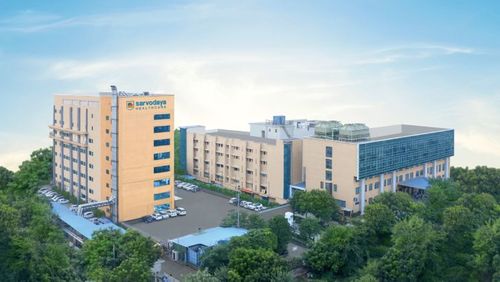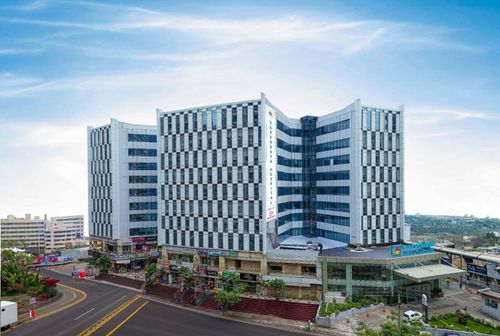Overview
Minimally Invasive Spine Surgery (MISS) offers a modern, patient-friendly alternative to traditional open back surgeries. Performed through small incisions with minimal tissue disruption, MISS is ideal for treating herniated discs, spinal stenosis, and vertebral fractures.
At Sarvodaya Hospital’s Department of Orthopaedics & Spine Surgery, our team of best Spine doctors in Faridabad utilises advanced imaging and surgical tools to ensure precision, reduced infection risk, and quicker recovery. Recognised as a leading minimally invasive spine surgery in Delhi NCR, we offer end-to-end care, from diagnosis to post-surgical rehabilitation, for optimal spinal health and long-term mobility.
Why is Minimally Invasive Spine Surgery Required?
Minimally Invasive Spine Surgery (MISS) is recommended when spinal conditions begin to severely impact daily function and do not respond to conservative treatments like medications, physiotherapy, or lifestyle changes.
Conditions commonly treated with MISS include herniated or slipped discs, spinal stenosis, degenerative disc disease, spondylolisthesis (spinal instability), vertebral compression fractures, and select cases of spinal tumours or infections.
MISS is especially preferred for its lower surgical risk, minimal blood loss, and quicker return to mobility, making it ideal for patients seeking surgical relief with shorter hospital stays and faster rehabilitation.
Benefits of Minimally Invasive Spine Surgery
Minimally Invasive Spine Surgery (MISS) offers several advantages over traditional open procedures, making it a preferred choice for both patients and surgeons. With the use of advanced imaging and specialised instruments, it ensures greater precision and better recovery outcomes.
- Smaller incisions lead to minimal tissue disruption and reduced visible scarring.
- Less blood loss is observed compared to traditional spine surgery techniques.
- Reduced infection risk due to limited internal tissue exposure during the procedure.
- Faster recovery time, allowing patients to resume routine activities much sooner.
- Shorter hospital stays, with many cases completed as day care or 24–48 hour admissions.
- Less postoperative pain, lowering dependency on painkillers and faster mobility.
- Enhanced surgical accuracy with real-time imaging and refined instrumentation.
- Ideal for elderly or high-risk patients, as it significantly reduces surgical trauma and related complications.
Post-treatment Lifestyle Modifications
Recovery after Minimally Invasive Spine Surgery (MISS) requires disciplined lifestyle adjustments to ensure optimal healing and prevent recurrence.
- Follow physiotherapy protocols to regain spinal strength and flexibility gradually.
- Practice correct posture while sitting, sleeping, and standing to support spine alignment.
- Avoid lifting heavy weights or bending excessively in the initial recovery phase.
- Engage in light exercises like walking or swimming after your doctor’s clearance.
- Use ergonomic chairs, cushions, and proper lumbar support at home and work.
- Maintain a healthy weight to minimise stress on the spine.
- Stop smoking and limit alcohol to aid faster tissue healing.













